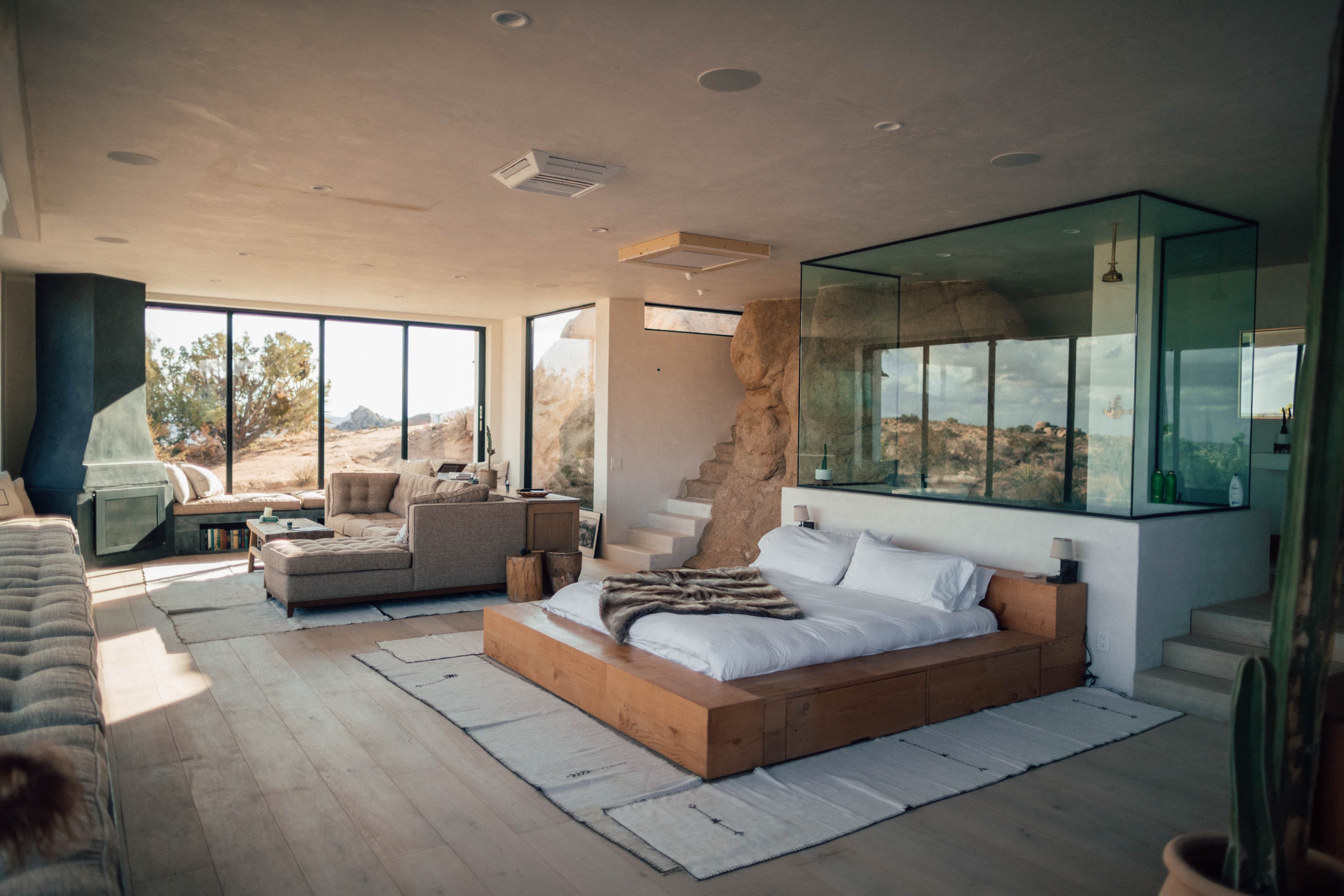How To Make Your Bedroom Feel More Relaxing
July 26, 2023 by Sophie Hughes

Everyone deserves a cosy and tranquil bedroom—a personal retreat where the pressures and challenges of daily life melt away. If you find it difficult to relax in your bedroom, it could be due to numerous design factors, such as your colour scheme and layout, not to mention the quality of your bed and mattress. While not everybody is blessed with the keen eye of an interior designer, there is no reason you should not enjoy the benefits of a beautifully-designed bedroom with the perfect balance of form and function. Here are some essential tips to get you started.
Declutter
You may have noticed that excess clutter caused you to feel stressed and irritable - don’t worry; it’s entirely normal. In fact, research shows that levels of the stress hormone cortisol rise when our home environments are cluttered or unclean. Therefore, your messy bedroom may be having a negative impact on your mental health.
Never underestimate the power of a good decluttering session. If you struggle with letting go of possessions regardless of their use or sentimental value, view decluttering as less like getting rid of things and more like prioritising what is important to you. As difficult as it may be, you’ll feel much better and able to relax afterwards.
Reconsider Your Colour Palette
Your choice of colour palette may have more of an impact on your well-being than you think. Certain colours evoke different emotions; for instance, blue tones are associated with calmness and serenity, whereas orange represents energy and vitality. Similarly, muted colours have a more calming effect. With this in mind, you can create a calm, tranquil ambience by incorporating muted shades of blue and green into your bedroom colour palette. However, don’t let colour psychology stop you from filling your space with your favourite hues. If you enjoy vibrant colours, nothing is stopping you from making your room a bright, colourful paradise.
Soft Lighting
Lighting is arguably one of the most crucial aspects of creating a relaxing living space. Most of us find it difficult to relax in environments with harsh overhead lighting. In contrast, soft, overlapping pools of light from sources such as table lamps and nightlights create a soothing, cosy atmosphere, perfect for winding down and increasing your melatonin levels in the evening, preparing you for a restful night’s sleep. You could even hang fairy lights above your bed for an extra touch of whimsical softness.
The Power Of Scent
As you’re probably aware, smells can evoke strong emotional reactions. They can also induce a profound sense of relaxation and well-being, hence the soothing power of aromatherapy. You can make your bedroom a spa-like sanctuary by adding some scented candles or wax burners.
Alternatively, fresh flowers or house plants could give your room a pleasant natural fragrance. It’s also a good idea to regularly air your bedroom out by opening the windows. Not only will fresh air make your room smell better, but ventilation significantly improves air quality, promoting better physical and mental health.
Freshen Up Your Bedroom Furniture
You can significantly improve the ambience of your bedroom by freshening up your furniture. You can do this by either reupholstering, upcycling or replacing bedroom furniture entirely with alternatives better suited to your needs and aesthetic preferences. For instance, if you find that clutter quickly accumulates in your bedroom, it may be worth swapping your regular bed frame for one with built-in storage. Furthermore, the quality of your mattress has a significant impact on your sleep quality and ability to relax, so make sure you have one with a good balance of comfort and support. If you’re unsure, here is a guide to choosing the ideal mattress.
Rethink Your Layout
It may come as a surprise, but the practical layout of your bedroom can impact your sleep quality. Experts suggest that the best position for a bed is against the wall as opposed to in the centre of the room. You may not strictly believe in Feng Shui, but following the rules of Chinese geomancy as it applies to furniture placement could help you create a functional, coherent space that enables you to relax. If nothing else, a well-thought-out layout may make your room appear larger and allow you to go about your daily routine more efficiently.